Can asparagus prevent hangovers? Fact-checking 3 widespread rumors of the week (20210609)
Can asparagus alleviate hangovers? Will Facebook’s algorithm restrict what content you can see in your news feed? Does Amazon Sidewalk automatically share your Wi-Fi with your neighbors? In this post, we will share three ongoing and widespread rumors. They may sound wild, ridiculous, or too creative to believe. Can you tell which are true and which are false?
Does eating asparagus prevent hangovers?
We hope so, but the statement is a mixture as rated by Snopes.
Recently this Tweet with an image that shows “Want to avoid a hangover? Eat asparagus!” went viral, receiving more than 179K likes and 30.6K retweets:
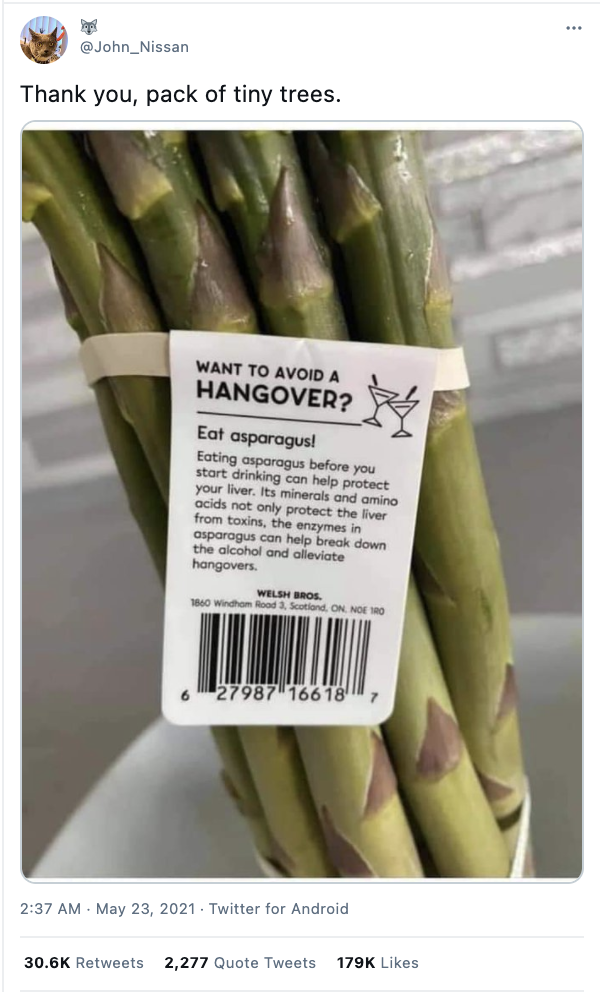
The tag says that eating asparagus before drinking can “help protect your liver” and can “help break down the alcohol and alleviate hangovers.” But is it true?
The abstract of a study in 2009 about Asparagus officinalis extracts by Institute of Food Technologists read, “Taken together, these results provide biochemical evidence of the method by which A. officinalis exerts its biological functions, including the alleviation of alcohol hangover and the protection of liver cells against toxic insults,” making people believe that asparagus does help reduce hangovers.
However, the study was actually just suggesting that asparagus may help prevent hangovers. The researchers conduct the experiment on human cells instead of human beings. Plus, they did not use asparagus; they use its extracts instead. Thus, there is NO direct evidence to support whether eating asparagus can help alleviate hangovers, for it has never been trialed, and no one yet knows what effects could it bring.
Well, you can still try, but please keep in mind that the statement “asparagus can prevent hangovers” is still undetermined!
Is it true that Facebook’s new algorithm only shows 25 friends’ posts in your news feed?
False (rated by Snopes). For years people have been discussing about the rumor that Facebook’s algorithm only shows you content from a limited number of friends, around 25. Now the rumor comes alive again, and many Facebook users are doing “experiments” with this speculation:
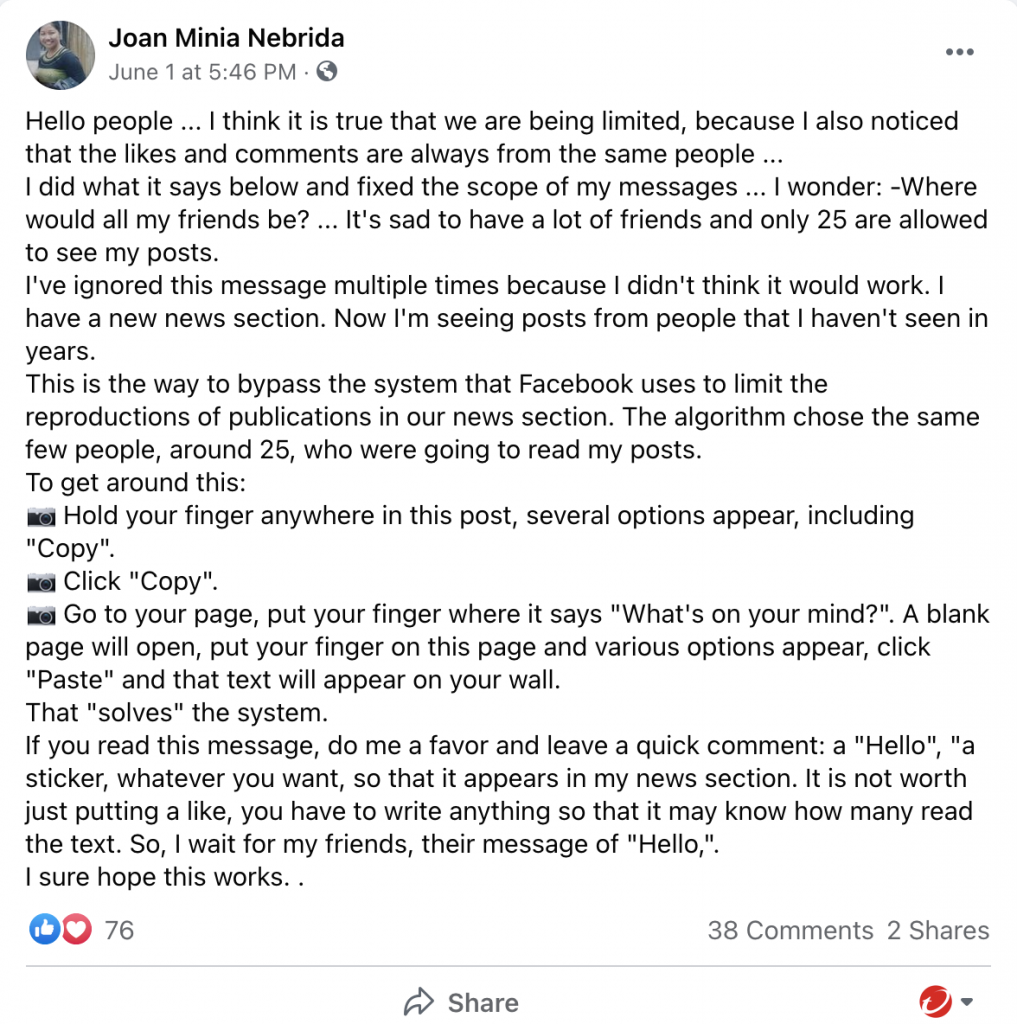
Content
Hello people … I think it is true that we are being limited, because I also noticed that the likes and comments are always from the same people …I did what it says below and fixed the scope of my messages … I wonder: -Where would all my friends be? … It’s sad to have a lot of friends and only 25 are allowed to see my posts.I’ve ignored this message multiple times because I didn’t think it would work. I have a new news section. Now I’m seeing posts from people that I haven’t seen in years.This is the way to bypass the system that Facebook uses to limit the reproductions of publications in our news section. The algorithm chose the same few people, around 25, who were going to read my posts.To get around this:![]() Hold your finger anywhere in this post, several options appear, including “Copy”.
Hold your finger anywhere in this post, several options appear, including “Copy”.![]() Click “Copy”.
Click “Copy”.![]() Go to your page, put your finger where it says “What’s on your mind?”. A blank page will open, put your finger on this page and various options appear, click “Paste” and that text will appear on your wall.That “solves” the system.If you read this message, do me a favor and leave a quick comment: a “Hello”, “a sticker, whatever you want, so that it appears in my news section. It is not worth just putting a like, you have to write anything so that it may know how many read the text. So, I wait for my friends, their message of “Hello,”.I sure hope this works. .
Go to your page, put your finger where it says “What’s on your mind?”. A blank page will open, put your finger on this page and various options appear, click “Paste” and that text will appear on your wall.That “solves” the system.If you read this message, do me a favor and leave a quick comment: a “Hello”, “a sticker, whatever you want, so that it appears in my news section. It is not worth just putting a like, you have to write anything so that it may know how many read the text. So, I wait for my friends, their message of “Hello,”.I sure hope this works. .
The statement is false. In 2018, Facebook announced the update about their algorithm: to “predict which posts you might want to interact with your friends about, and show these posts higher in feed” and “prioritize posts from friends and family over public content.”
That is, Facebook is NOT restricting what content you can see; the major change is that you may see less content from public pages but more content from close friends in your news feed.
Rest assured that you can see all your friends’ posts. Facebook is not hiding any of them!
Does Amazon Sidewalk automatically share your Wi-Fi with neighbors without permission?
YES and NO. The statement is a MIXTURE (rated by Snopes).
Amazon Sidewalk will launch on June 8, 2021. According to Amazon, “Sidewalk helps simplify new device setup, extends the working range of low-bandwidth devices, and helps devices stay online, even if they are outside the range of the user’s home wifi.” People are wondering: Does that mean it will share my Wi-Fi with neighbors without permission?
Here is the truth: Amazon Sidewalk does automatically opt in users with Amazon Sidewalk Bridge devices, and of course, you can choose to opt out at any time. As reported by CNET, Amazon Sidewalk is designed to “keep things connected even when they’re outside the typical range of home Wi-Fi.” The report also mentioned, “At launch, your options for longer-range connections like those will include Ring’s line of outdoor lights and cameras, the Level smart lock and Tile’s Bluetooth tracker tags.”
However, when it comes to Wi-Fi sharing, NOT EVERY neighbor will share your Wi-Fi. Sidewalk only enables Wi-Fi sharing with customers whose Amazon devices are connected to Sidewalk, which also share a fraction of a customer’s Wi-Fi. (Snopes) And again, customers can opt out at anytime.
Unsure of what you read online? Use Trend Micro ScamCheck to search for the information you need to combat fake news and misinformation:
1. ScamCheck Chrome extension:
Select a statement and click on the red ScamCheck logo for immediate detection results.
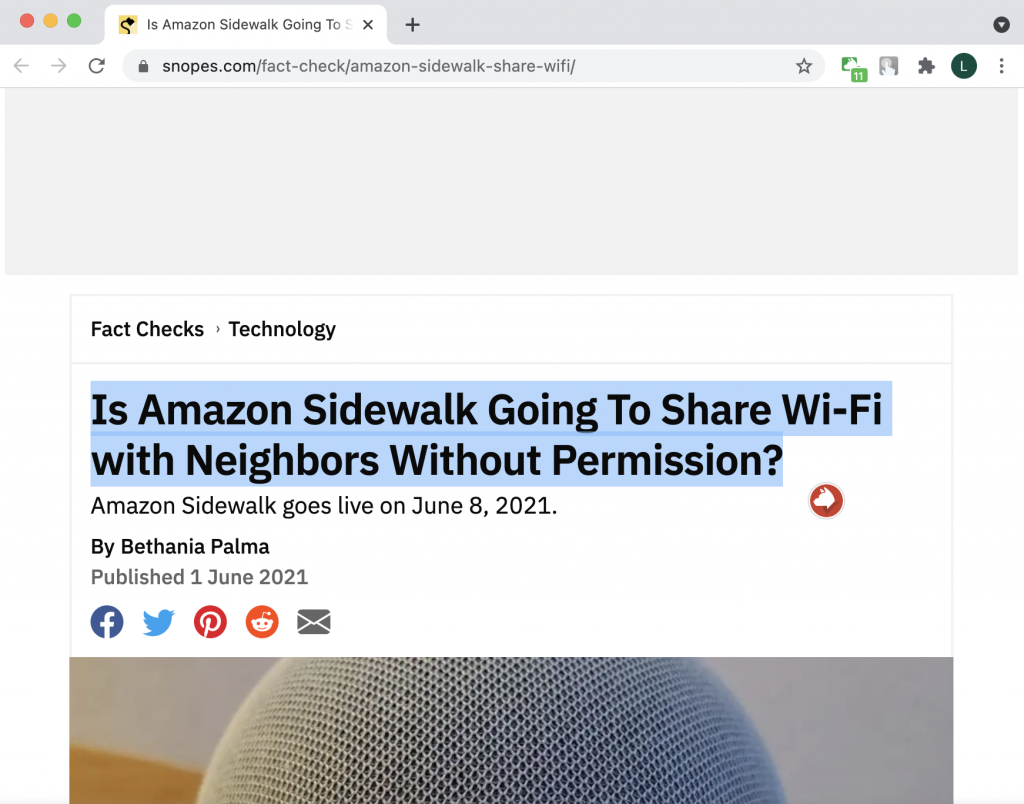
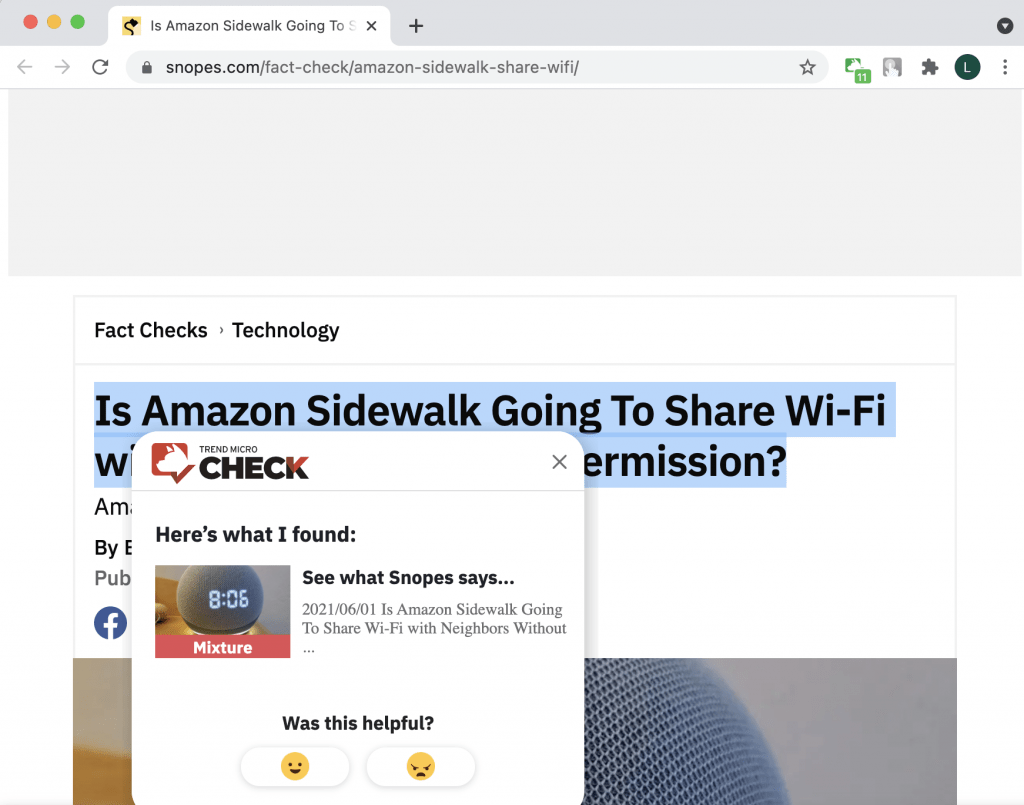
2. ScamCheck on WhatsApp:
Copy-paste a statement or send ScamCheck questions directly to help you search for related news you need to tell what is true.
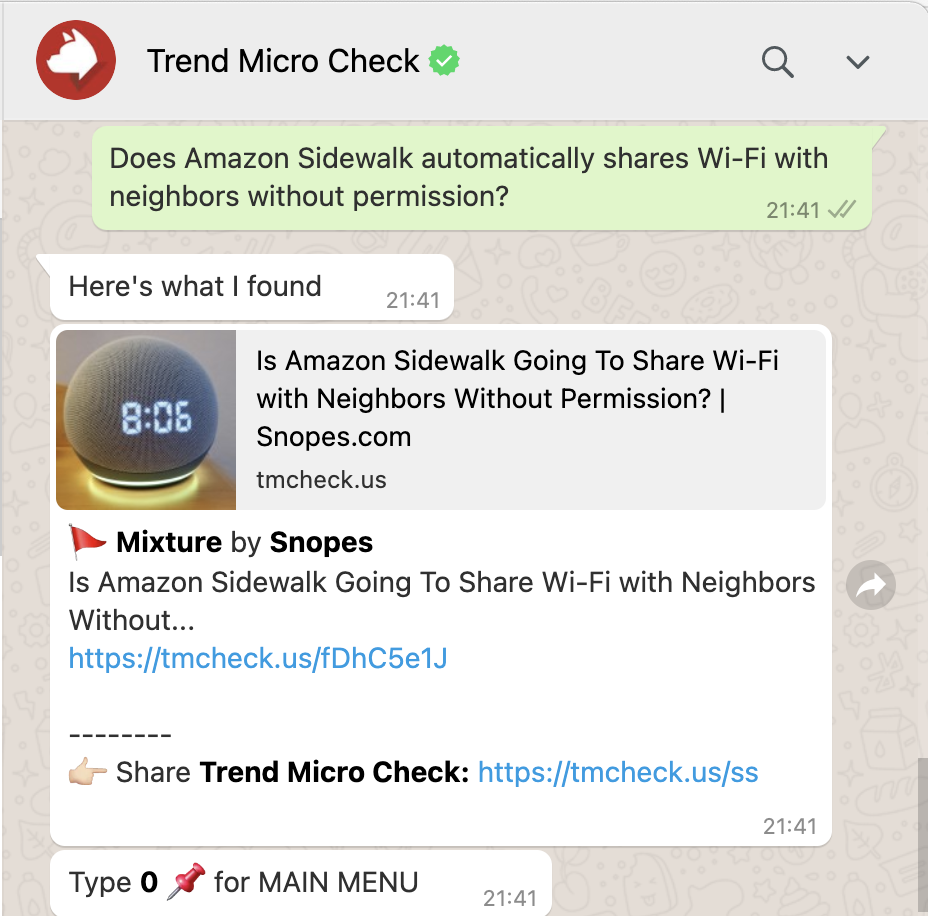
Did you successfully identify the truth from the rumors? Pay more attention to what you read and share online! To combat rumors and misinformation, remember, you should always check first before you share.
Click on the button below to try Trend Micro ScamCheck for free now:
